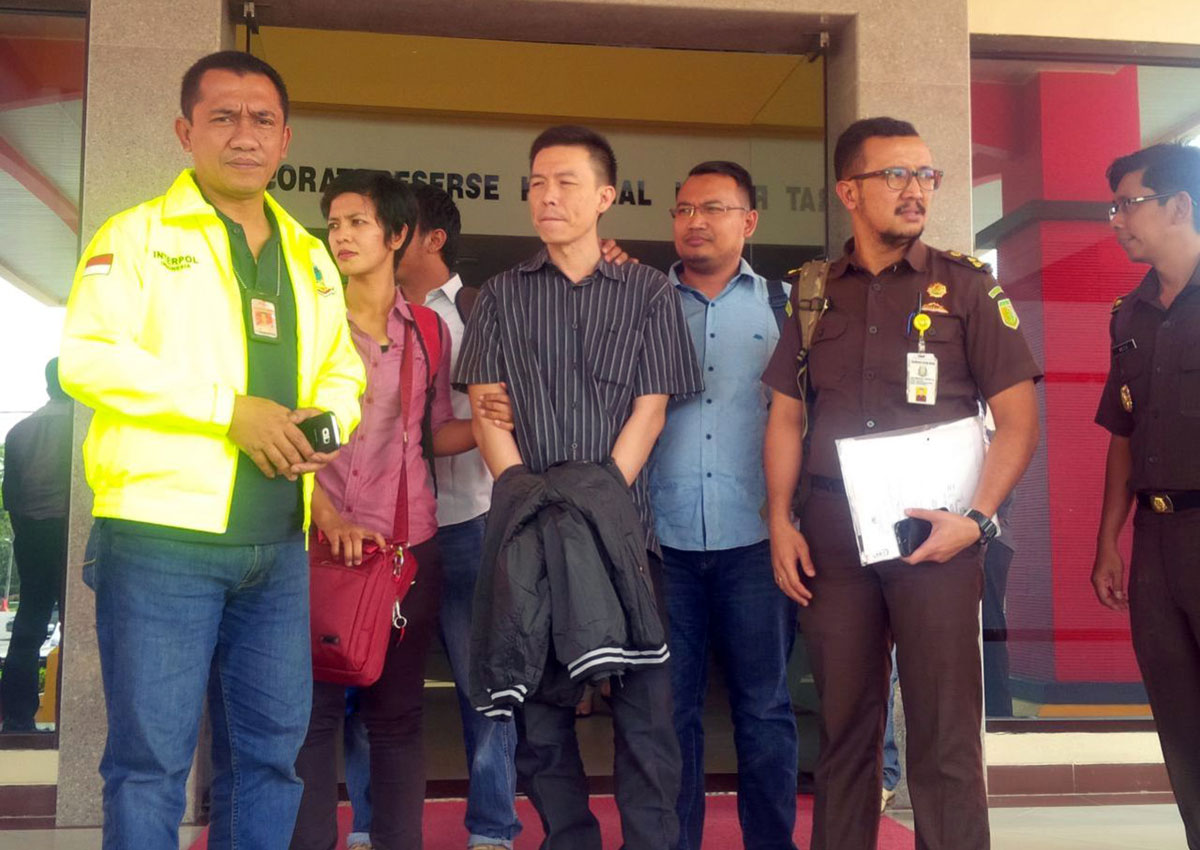Singaporean Lim Yong Nam is now in United States custody after Indonesian police handed him over to their US counterparts in Jakarta yesterday.
Lim, who faces charges for breaching an American trade embargo against Iran, was sent to the capital from Batam island, where he had been held while the US’ extradition request was being reviewed by Indonesia.
“Lim Yong Nam has been handed over to a US Marshal… but we cannot disclose the location of the (prisoner) transfer,” said Mr Andar Perdana Widiastono, who heads the provincial prosecutor’s office in Riau Islands province.
When contacted, an official from the US Embassy in Jakarta declined to comment on the case.
Indonesia has no formal extradition agreement with the US, but Indonesian law allows for such requests to be considered on a case- by-case basis. A Batam district court granted the request last year.
Judges said they had taken into consideration the two countries’ good relations and America’s help in returning two Indonesian criminals to Indonesia.
President Joko Widodo endorsed the court’s ruling in January.
Lawyer Boy Kanu, who represented Lim in Batam, said his client had tried to appeal to be sent to Singapore instead.
Efforts to reach Lim’s wife in Singapore for comment yesterday were unsuccessful.
Singapore’s Ministry of Foreign Affairs (MFA) said yesterday it has contacted the relevant US authorities to ask for information on the legal process that Lim will face in the US. “We have also requested the US to ensure that Mr Lim is accorded his due legal rights. MFA will continue to discharge our consular responsibilities by providing Mr Lim with the necessary assistance,” an MFA spokesman said in a statement.
Lim is accused of acquiring 6,000 radio frequency modules for export to Iran. The US had asked Singapore to extradite him in 2011, but the Singapore High Court found that the crime he was accused of was not an offence in the Republic.
Lim had been held in Batam since October 2014 after he went to the island to attend a trade exhibition.
In 2011, he was indicted along with three other Singaporeans and an Iranian national by the US Department of Justice for conspiring to allow electronics components from the US to be exported illegally to Iran instead of their stated final destination, which was Singapore.
The US alleged that 16 of the modules were found later in improvised explosive devices in Iraq that had not been detonated.
wahyudis@sph.com.sg

This article was first published on April 1, 2016.
Get a copy of The Straits Times or go to straitstimes.com for more stories.






